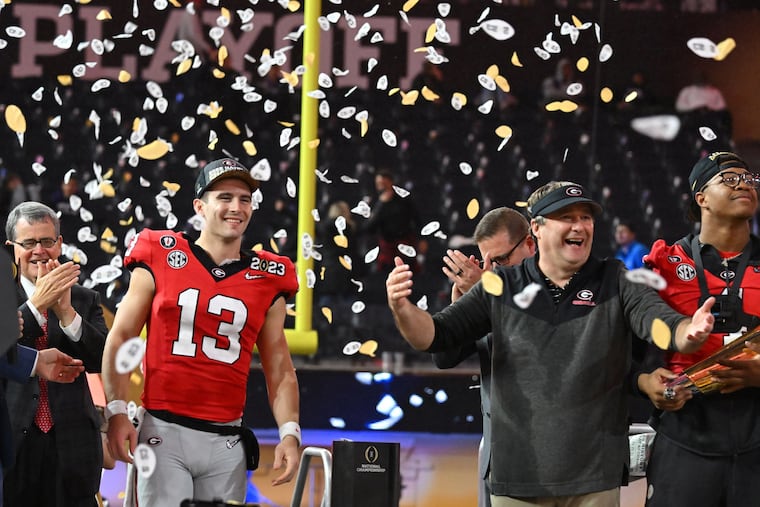NCAA panel changes reinstatement guidelines for sports wagering violations
The new reinstatement system will feature a tiered approach. But athletes who bet on their own games or another sport at their school could permanently lose eligibility.

The NCAA Division I Legislative Committee has amended the guidelines for reinstating the eligibility of athletes who commit violations relating to sports wagering.
According to the NCAA’s memo released Wednesday, the new reinstatement system will feature a tiered approach, depending on whether an athlete placed a bet on their collegiate team or pro sports.
Athletes who bet on their own games or another sport at their school could permanently lose eligibility for what the NCAA calls “influencing the outcome of their own games or knowingly providing information to people within the sports betting industry.”
» READ MORE: Adam Fisher talks about enjoying the ‘pressure’ of returning Temple to basketball prominence
Placing wagers on their own sport at another school, the student-athlete could lose up to 50% of one season of his or her eligibility and would receive education on sports betting rules and prevention.
For other betting violations, including those who place bets on professional sports, different penalties will be imposed depending on the money placed on bets. The NCAA took a tiered approach, with the punishments becoming more severe as the amount of money on bets increases:
$200 or less: Education on sports betting rules and prevention is required.
$201 to $500: Loss of 10% of a season, plus further education.
$501 to $800: Loss of 30% of a season, plus further education.
More than $800: NCAA reinstatement staff will consider whether further loss of eligibility is appropriate, including potentially permanent ineligibility.
These new guidelines will apply to violations that were reported after May 2.
Previously, the NCAA had a zero-tolerance policy against sports betting, prohibiting players and coaches from placing wagers. Athletes who placed wagers on sports would lose one full season of college eligibility. The new guidelines would move away from a “one size fits all” approach, according to Alex Ricker-Gilbert, athletic director at Jacksonville and chair of the DI Legislative Committee.
» READ MORE: Imhotep Charter’s Ahmad Nowell: A hot recruit in the new NIL era
“These new guidelines modernize penalties for college athletes at a time when sports wagering has been legalized in dozens of states and is easily accessible nationwide with online betting platforms,” Ricker-Gilbert said. “While sports wagering by college athletes is still a concern — particularly as we remain committed to preserving the integrity of competition in college sports — consideration of mitigating factors is appropriate as staff prescribe penalties for young people who have made mistakes in this space.”
These new guidelines arrive as the NFL deals with its own gambling issue, with the latest wave of players, including the Colts’ Isaiah Rodgers, reportedly facing up to a yearlong suspension. The NFL prohibits players, coaches, and personnel from placing bets on football, but allows players to bet on other sports, as long as it’s not in team facilities or at team hotels during away games.
» READ MORE: With more suspensions on horizon, what is the NFL’s policy on gambling?